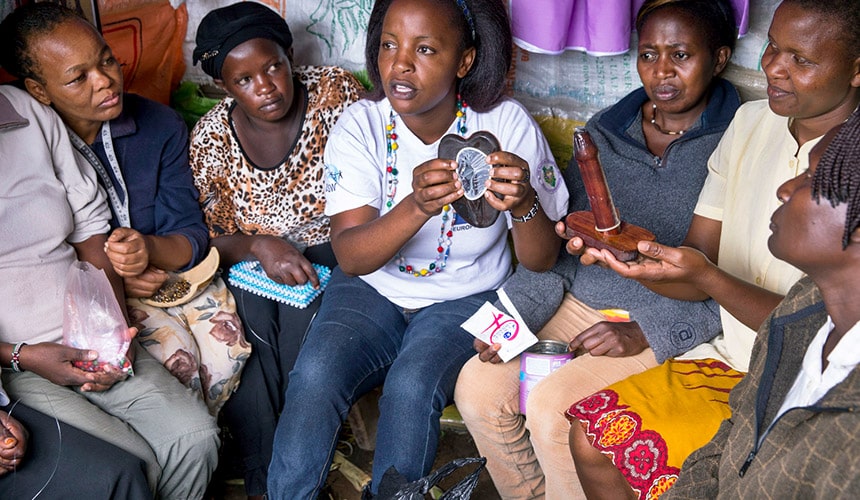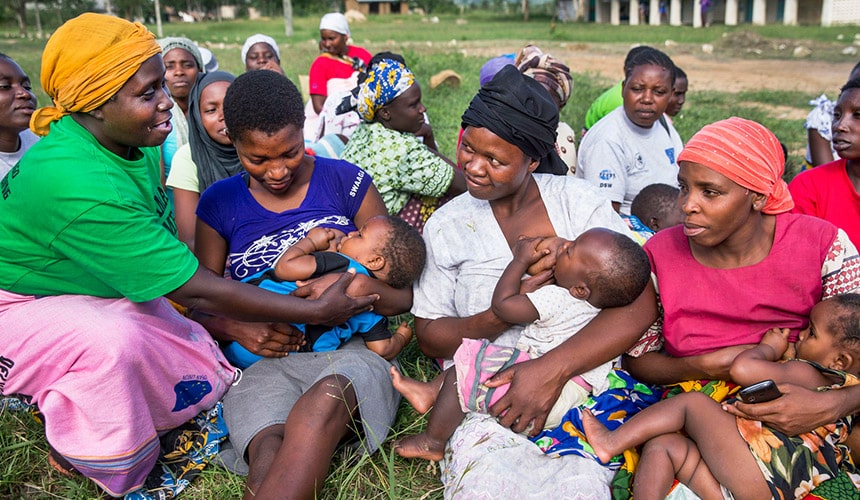The Problem
The reproductive health field has developed a number of indicators to measure quality of care; however, it is unclear how responsive these indicators are to women’s priorities and needs. Although research suggests that addressing client perspectives on quality of care can improve client satisfaction, increase use of services, and result in better health outcomes, recent literature on client perceptions of reproductive health services, and what constitutes high quality care, is limited. In addition, this research does not adequately address abortion care or the role of cultural context in client perceptions of quality. Women’s feedback is critical to ensure that client-centered indicators are used to assess quality of services, and to hold service providers and policymakers accountable for providing high quality care.
The Solution
To ensure that reproductive health services are evidence-based and responsive to women’s needs, Ibis is collecting in-depth data on Ghanaian and South African women’s perspectives on and experiences with reproductive health care, with a focus on abortion and post-abortion care. In both countries, little has been done to measure and understand the quality of reproductive health care, and the role that quality plays in access to and use of reproductive health and family planning services. The data collected will be used to identify gaps in indicators of quality of reproductive health services, suggest modifications to indicators, identify areas for quality improvement, and develop new indicators that are responsive to women’s perspectives of quality. The goal is to help enhance the quality of reproductive health care by improving measurement and monitoring of service delivery quality, and ensuring that abortion is included in service assessment and quality improvement.

The Strategy
- Review the literature on existing quality indicators. Ibis reviewed the literature to help the team identify current indicators and generate hypotheses about critical gaps and shortcomings.
- Conduct focus groups to explore women’s care perspectives and experiences. Ibis is conducting focus group discussions with women ages 18 to 45 in urban centers in Ghana and South Africa who have recently accessed reproductive health services. During the discussions, moderators ask women about their experiences with these services, request that they prioritize areas of health care most in need of improvement, and discuss how services can be enhanced to better respond to their needs and preferences.
- Develop a list of priority modifications and additions to existing quality indicators. Drawing on the focus group data, Ibis will identify needed refinements to existing quality indicators and develop new indicators to address gaps. Suggested modifications and additions will be shared with relevant stakeholders at the regional and global level, with an eye toward promoting the use of evidence-based indicators that are responsive to women’s priorities and needs. Research findings will be disseminated through briefs, webinars, and in-person presentations.
High quality abortion care is critical to promote women’s rights and health. We hope this research will identify ways to assess and improve women’s experiences seeking and receiving abortion care, and ultimately will help to establish abortion care as a critical element of quality reproductive health care.
—Ibis staff member
Achievements
Partnerships for study implementation have been established. In South Africa, Ibis was able to leverage an existing partnership with Marie Stopes, the country’s largest provider of sexual and reproductive health services, to help recruit focus group participants; staff from Ibis’ South Africa office will manage the data collection. In Ghana, Ibis is working with a new investigator at the School of Public Health at the University of Ghana, who will lead both the participant recruitment and data collection efforts.
The project has made progress on collecting data about quality perceptions. Despite some initial delays, Ibis obtained approval for the planned data collection from the relevant ethical review committees in Ghana and South Africa. Data collection is now complete in Ghana and under way in South Africa. Ibis staff are working with partner organizations to begin data analysis and identify areas for improvement in quality measurement.
Ibis has been able to engage in and promote dialogue around abortion quality by focusing on improving and refining indicators for quality of abortion and post-abortion care. Even among organizations working on quality of reproductive health care, abortion care receives little or no attention, highlighting the need for additional work in this area. Ibis’ continued work on quality of abortion care has helped raise the visibility of this issue and identify partners working on related topics globally.
Challenges
Coordinating data collection across two countries led to delays in project implementation. The project took longer to launch in Ghana, because Ibis was working with a new investigator there. This delay had implications for data collection in South Africa as well—the ethical review committee in South Africa required that study approvals be obtained for both countries prior to data collection in Johannesburg.
Stigma and privacy concerns prompted changes in Ibis’ approach to the focus group discussions. The Ghanaian ethical review committee was concerned that discussion of abortion care experiences in Ghana specifically would make focus group participants uncomfortable and unlikely to participate in focus groups. In response, references to abortion care in Ghana were removed from the focus group guides, and replaced with questions that instead asked about participants’ perspectives on abortion care around the world. Although the ethical review committee in South Africa allowed the focus group guides to ask about abortion care in South Africa specifically, Ibis faced challenges in getting women to participate in these discussions, likely also due to stigma and privacy concerns. To increase participation, South African focus group participants were told that they did not need to share personal abortion or reproductive care experiences and could instead speak more generally about women-centered quality of care.

Key Learnings
The literature review confirmed the need for improved abortion care indicators. The literature review revealed that maternal health care indicators, originally a priority area for this project, have been the focus of extensive research and documentation. It also validated the project’s focus on abortion and post-abortion care. Findings confirmed Ibis’ hypothesis that indicators of the quality of abortion care services were limited and lacked a client-centered perspective.
Next Steps
Ibis plans to use project findings to inform the development of a larger quantitative survey with women in multiple countries to broadly test the validity of the refined indicators—on the quality of abortion care services, as well as reproductive health care delivery more broadly. Ibis also hopes to expand its qualitative data collection in order to gain a nuanced understanding of quality concerns in a range of settings.
Implementing Partners
Location
Ghana – Accra
South Africa – Johannesburg
Categories
Family Planning, Abortion Care, Youth
Year Awarded
2013
Project Timeline
July 22, 2014 – December 31, 2015
About the Grantee
Ibis Reproductive Health aims to improve women’s reproductive autonomy, choices, and health worldwide. Ibis conducts clinical and social science research on issues receiving inadequate attention in other research settings and where gaps in the evidence exist. Ibis’ agenda is driven by women’s priorities and focuses on increasing access to safe abortion, expanding contraceptive access and choices, and integrating HIV and comprehensive sexual and reproductive health services. Ibis staff partner with advocates, health care providers, policymakers, and other stakeholders who use Ibis research to improve reproductive health policies and services around the world.